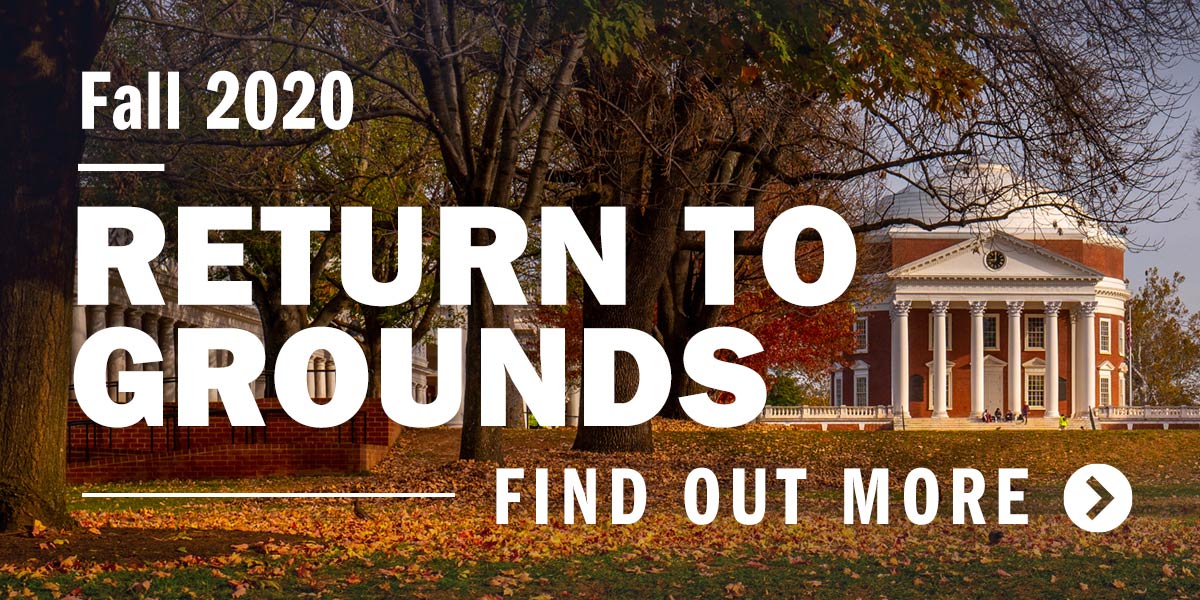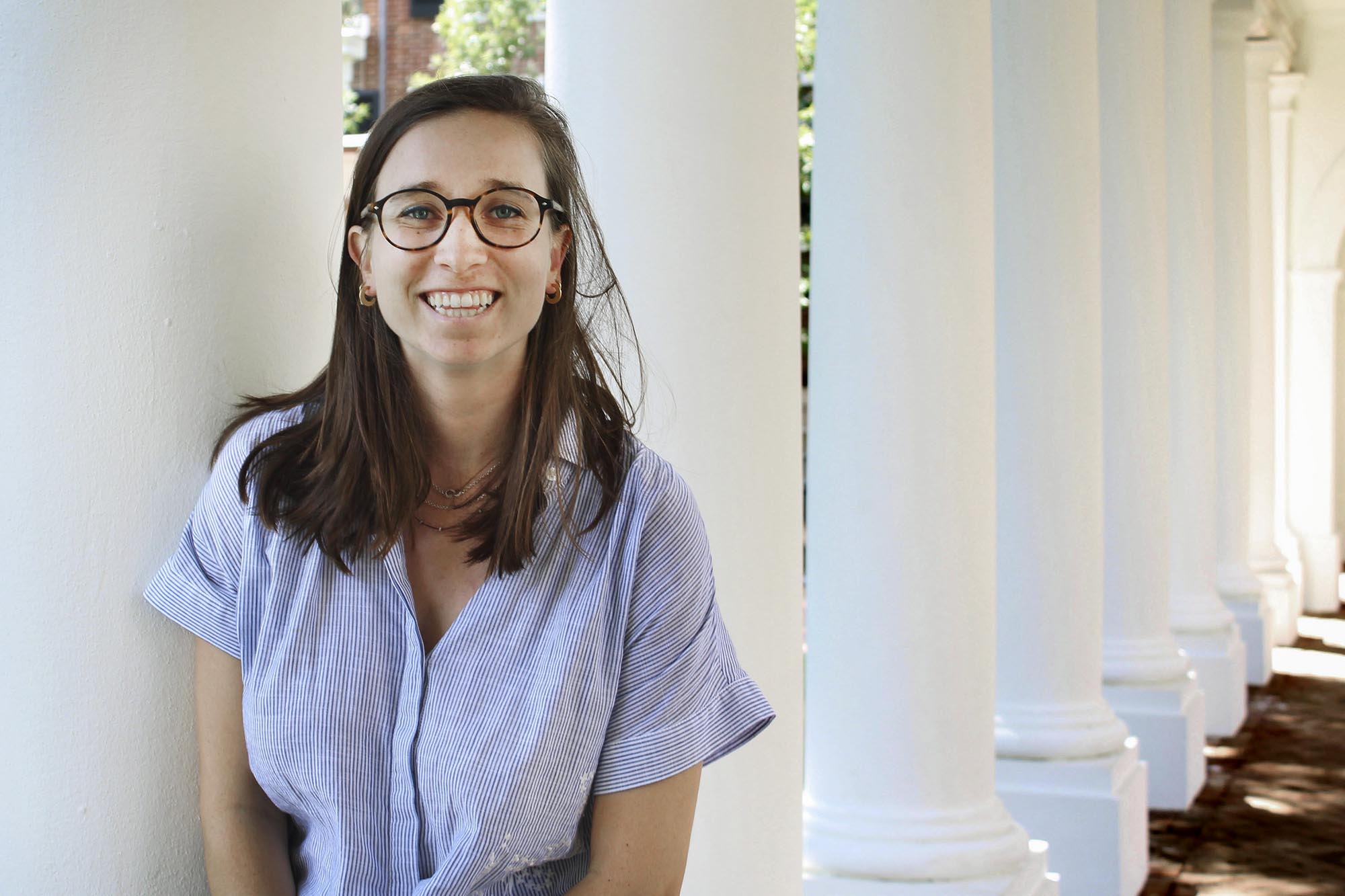Neely Margaret Egan, who graduated from the University of Virginia in May with a degree in political and social thought, wants to broaden her horizons by working as an English teacher in Tunis, Tunisia. Egan will work there as part of the Middle East and North Africa Regional Fellowship program.
She is one of only three MENAR Fellows selected this year and only the second UVA graduate to be a MENAR Fellow.
The Jacksonville, Florida, native is seeking to put her education to the test by working for ClubAnglais, which runs an English-language immersion preschool as well as offering an intense, interactive, English-learning, after-school program for high schoolers. Egan will teach both of these curriculums.
“During my time at UVA, I devoted a fair share of my time to studying Arabic and the Middle East,” she said. “These studies started as a way to challenge the monolithic narrative I had been given while growing up in a post 9/11 America, but grew to be something I was deeply interested in – the art, the language, the politics, the food, the history and the people.”
Egan, who has traveled to Israel and Palestine on a short research trip, was paired with Tunisia and ClubAnglais through the MENAR application process.

“I think that Tunisia is a very unique country in that region,” Egan said. “It is considered the only Arab democracy in the Middle East and its government is quite secular. This alone sets it apart from some of its neighbors. This government was a product of the Tunisian Revolution in 2011, which later inspired the Arab Spring and opened up Tunisia to many political and social changes. From the 1880s to the late 1950s, Tunisia was a French colony. This wild combination of politics, history and remolding has me so fascinated.”
She thinks her work with children will help her learn more about the country.
“I think that children are an entertaining and uncensored way to understand a new place,” Egan said. “I’ve found that I can learn an immense amount from my students. Children know more than they are often given credit for, but, unlike the adults that surround them, they usually do not have any agenda attached to their knowledge. What better way to learn about a new place than through the unfiltered lens of a group of children?”
As a fourth-year student, Egan wrote her political and social thought thesis on “An Artistic Study of the Palestinian-Israeli Conflict: Poetry, Visual Art and Theater Since 1948.” She applied to the MENAR program to apply her studies.
“I want to understand what I’ve learned in a more practical way, but also I want to realize how much I still don’t know,” she said. “It will be no shock to me to learn that four years of classroom studies did not fully capture this region, its many countries, nor the people who call them home. It will also be a great way to practice my French and Arabic.”
Michael Joseph Smith, Thomas C. Sorensen Professor and director of the Program in Political and Social Thought, taught Egan in his seminars.
“Neely consistently added subtle insights and thoughtful questions to our discussions,” Smith said. “Her concern for social justice informed all her work. She lived this commitment outside the classroom, too – for example, helping to introduce local elementary school students to computer coding. She has a wonderful way of listening and learning from others; she is attuned to the richness of human aspiration.”
Neely worked as an instructor with UVA’s chapter of Girls Who Code, a nonprofit organization created to increase women’s participation in technology, science and mathematics. Egan had come to UVA to work in computer science, but was more comfortable in the humanities. Girls Who Code gave her an opportunity to inspire girls in science.
“My goal as a coding instructor was to instill a love for coding in my students that will one day allow them to move more confidently in their future classes than I ever did,” she said.
Bilal Maanaki, a senior lecturer of Arabic in the Department of Middle Eastern & South Asian Languages & Cultures, described Egan as a warm and very approachable person.
“I recommend her with no limit whatsoever and I am sure that she will be a good addition to any team or work she will be put into,” he said.
Aside from Girls Who Code, Egan was the vice chair of membership of the University Programs Council; a member of the Minority Rights Coalition education committee; and a member of the Pi Beta Phi Sorority and Phi Beta Kappa. She received an Arts & Sciences Small Research and Travel Grant for her trip to Israel and Palestine.
“I am very excited for Neely,” Andrus G. Ashoo, director of the Office of Citizen Scholar Development, said. “It is always satisfying to see students pursue opportunities about which they were unaware before interacting with our staff. In this case, it is pretty special because Neely is one of few international fellowship recipients who might travel in the near future.”
Egan is scheduled to travel to Tunisia around the end of August.
“Tunisia’s borders are currently closed to most Americans, but the directors of ClubAnglais have worked with the American embassy in Tunis as well as the Tunisian consulate in New York to allow me to travel there following some strict guidelines,” Egan said. “Once I’m there and have quarantined for the appropriate amount of time, I will be free to start work in person with my students.”
The Middle East and North Africa Regional Fellowship Program was founded in 2011 to offering one-year post-graduation fellowships to top graduates of American colleges at leading organizations across the Middle East and North Africa. Since then, 29 fellows have worked and lived in Egypt, Jordan, Morocco, Tunisia, Qatar and the United Arab Emirates.
The MENAR Fellowship Program facilitates intercultural exchange for recent American college graduates with businesses and non-profit organizations in the Middle East. The program provides organizations with fellows and allows fellows to access a range of opportunities and supports fellows and partners through the intricacies of international placements.
Media Contact
Article Information
August 19, 2020
/content/uva-grad-use-her-education-menar-fellow-tunisia

